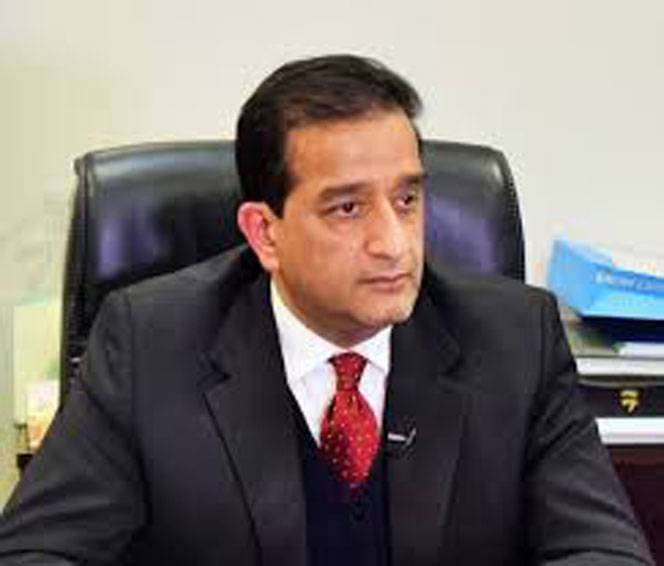ISLAMABAD - Special Assistant to Prime Minister on Climate Change, Malik Amin Aslam, on Sunday said that urban forestry approaches are being assigned heightened importance and made integral part of the Ten Billion Tree Tsunami Programme to fight fallouts of environmental degradation and climate change on cities and towns of the country.
“Boosting tree covers in urban areas through sustainable and community-driven urban forestry initiatives has been made central part of the country’s largest afforestation programme launched last year as a part of the Prime Minister Imran Khan’s vision for Clean and Green Pakistan Programme,” Malik Amin Aslam said in his press statement released here today.
He said further that urban forestry initiatives under the country’s largest afforestation initiative Ten Billion Tree Tsunami Programme would also lead to establishment of several ‘green urban forest islands’ in the country’s cities, where indigenous fruit and non-fruit trees would be planted to stem, among others, frequenting and intensifying incidents of heat wave, dust storms, urban flooding, soil degradation due to cloudbursts and air pollution.
“We have urged all provincial forest departments, municipalities, city development authorities and other relevant government organisations, which are partners in implementation of the TBTTP, to roll out plans under the country’s largest afforestation programme for setting up forests in urban centres and engage communities in establishment of such green forest islands,” he said. Highlighting impacts of such urban forests, Malik Amin said that forest islands in urban areas can help transform cities and towns into being more sustainable, heat wave and urban flood-resilient, healthy, equitable and liveable places.
“Without promoting urban forestry by involving also communities, students, corporate sector and other civil society organisations, the country’s various urban areas including Lahore, Karachi, Hyderabad, Multan, Faisalabad, Peshawar and Rawalpindi will continue to remain increasingly vulnerable to various socio-economic, environmental and climate change-related problems,” he underlined.
SAPM Malik Amin Aslam recalled that on July 29 he had visited the Miyawaki Urban Forest site in Lahore, which has been established in the city’s densely populated locality of Shadman by the Park and Horticulture Authority (PHA) Lahore to offset the growing negative impacts of particularly air pollution in the surrounding areas.
“It was really a matter of great excitement for me to see the first ever small city forest island established under the globally-recognised Miyawaki approach in Lahore now delivering positive impacts on the surrounding environment, which has also led bird’s population in the area,” Malik Amin Aslam said and added, “a much needed initiative that now we have decided to replicate in other cities of the country.”
Having observed the amazing positive impacts of the Miyawaki Urban Forest area, I feel convinced to call upon all federal and provincial forest departments and other relevant city and town management organisations to adopt Miyawaki urban forest concept in cities of their respective provinces to improve urban environments, overall public health and make urban areas climate-resilient.
Explaining about Miyawaki urban forest concept, he said it is a world-recognised novel idea coined by Japanese botanist Akira Miyawaki that helps build dense, native forests especially in urban areas to mitigate deleterious fallouts of environmental degradation due to soaring air pollutions, depleting groundwater resources, urban heat waves, urban flooding, surging population growth and haphazard urban growth.
Given the proven efficacy in tackling environmental challenges of cities, the urban forest approach like Miyawalki is being adopted globally to fight negative impacts of environmental degradation and shifting climatic patterns because of global warming, SPPM Malik Amin Aslam highlighted.
Making cities to enhance the contribution towards growth in urban forests through model urban forests in cities across the country would prove of unprecedented value in addressing environmental and climate change-related challenges, which require developing an enabling environment for urban forestry through appropriate governance, policies, legal frameworks and durable/viable investment models, he commented.
Malik Amin, however, cautioned that promoting urban forestry, in fact, is not possible without hammering out measures needed for successful community-centric urban forestry programmes, which involves all segments of the society for lasting ownership of such green islands in cities.
These could include measures on communication and awareness, community engagement, building alliances and partnerships, and identifying research needs for making cities more sustainable and resilient, reducing poverty and hunger, enhancing natural habitat and fostering sustainable economic growth, he spelled out.
Explaining further about various benefits of the urban forestry, Malik Amin Aslam highlighted that though urban trees function as excellent filters for urban pollutants and fine particulate, urban forest models like Miyawaki are more manageable, sustainable, rapid to grow and yield positive impacts on overall urban environments and public health in just few years’ time.
The trees in cities and towns, the prime minister’s special assistant on climate change said, can also provide food, such as fruits, nuts and leaves as a source of livelihoods.
Highlighting positive effects of such urban forests on public health, Amin Aslam said that spending time near trees improves physical and mental health by increasing energy level and speed of recovery, while decreasing ailments like blood pressure, anxiety and stress.
Talking about the role of urban trees in tackling heat wave impacts in urban areas, he said that trees, when planted properly around buildings, can lead to reduction in air conditioning needs by 30 per cent, save energy used for heating by 20–50 per cent during winter season and increase property values by 20 per cent.






